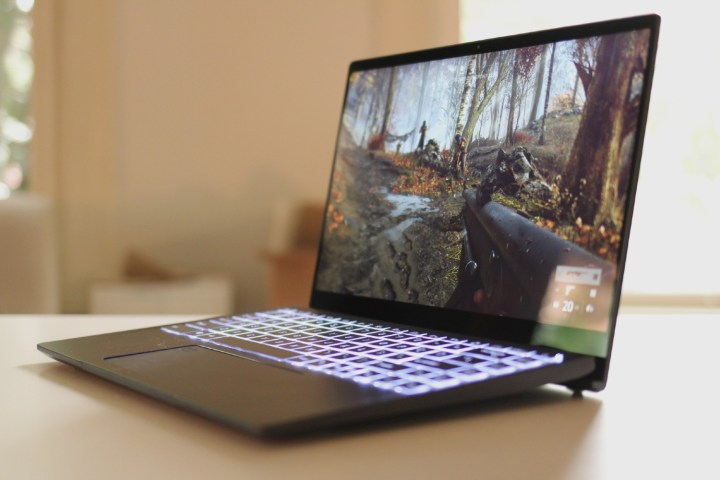The good news is that new Intel-powered laptops can benefit from even longer battery life thanks to Intel’s new artificial intelligence-powered co-processor called Clover Falls. The not-so-good news is that Clover Falls, at least initially, will be limited to commercial notebooks, so consumers will have to wait just a bit longer for the technology to trickle down to popular laptops such as the XPS 13, Spectre x360, and ZenBook Flip S.
Intel describes Clover Falls as “a secure companion chip that helps make PCs more smart and secure through the power of Intel artificial intelligence.” Intel added in a company blog post that the chip will help laptops sense and adapt to their surroundings. One example of how Clover Falls works is that the laptop could automatically turn up the display brightness when it detects a user is present or turn off or dim the screen when you walk away.

It’s unclear what other features and experiences Intel and its partners will be able to deliver through Clover Falls. The company is taking a platform-level approach to computing, and it is bundling Clover Falls with its Intel Evo platform, which was previously referred to as Project Athena. At its core, Evo delivers a set of requirements for responsiveness, battery life, instant wake, and fast connectivity, and the company claimed that these guidelines help users to understand what they can expect out of a notebook with Intel Evo branding.
Targeting battery life could help laptops with Clover Falls take on Apple’s new MacBook Pro and MacBook Air powered by the M1 silicon.
In terms of battery life, Intel and its partners had previously stated that Evo-certified laptops will deliver at least nine hours of battery life with a 1080p display. It’s unclear how much more battery life Intel will be able to squeeze with artificial intelligence-tuned settings, For comparison, Apple claims that the new M1-powered MacBook Pro delivers up to 20 hours of battery life. and with a stated battery life of 18 hours for the MacBook Air, Apple’s M1 processor delivers roughly double the battery life of Intel’s current Evo numbers.
For its part, Intel did not reveal when Clover Falls will arrive on commercial or consumer laptops. From its platform approach detailed in the company’s blog post, we expect systems with Clover Falls silicon to trickle out, as Intel will likely be working in close collaboration with partners to hit key metrics, as it did with the original Evo targets for performance and battery life. With Dell’s vice president of Latitude also offering commentary on the blog post, we can expect Dell to be a key partner and future Latitude commercial notebooks to come with Clover Falls co-processors.
“Working with Intel is so much more than buying a processor that will work with our product,” said Dell’s Meghana Patwardhan. “The co-engineering effort involves Intel’s dedication to tackling unique product challenges together and taking the entirety of the system into consideration — all so we can deliver amazing new platform features to business users.”
In addition to Dell, other laptop manufacturers like Acer, Asus, HP, Lenovo, and Samsung are also part of Intel’s Evo program. Whether laptops from these manufacturers, like the HP Spectre x360 or Lenovo Yoga 9i, will get refreshed down the road with Clover Falls co-processors is unclear. Intel also did not give any examples of how Clover Falls will add to a laptop’s security in its blog post.
Editors' Recommendations
- Intel is using AI to make your laptop battery last longer
- Can I use an Intel Arc GPU with AMD Ryzen?
- These apps use A.I. to automate your life and save you time
- Intel and University of Pennsylvania are using A.I. to find brain tumors
- Intel is using A.I. to build smell-o-vision chips


